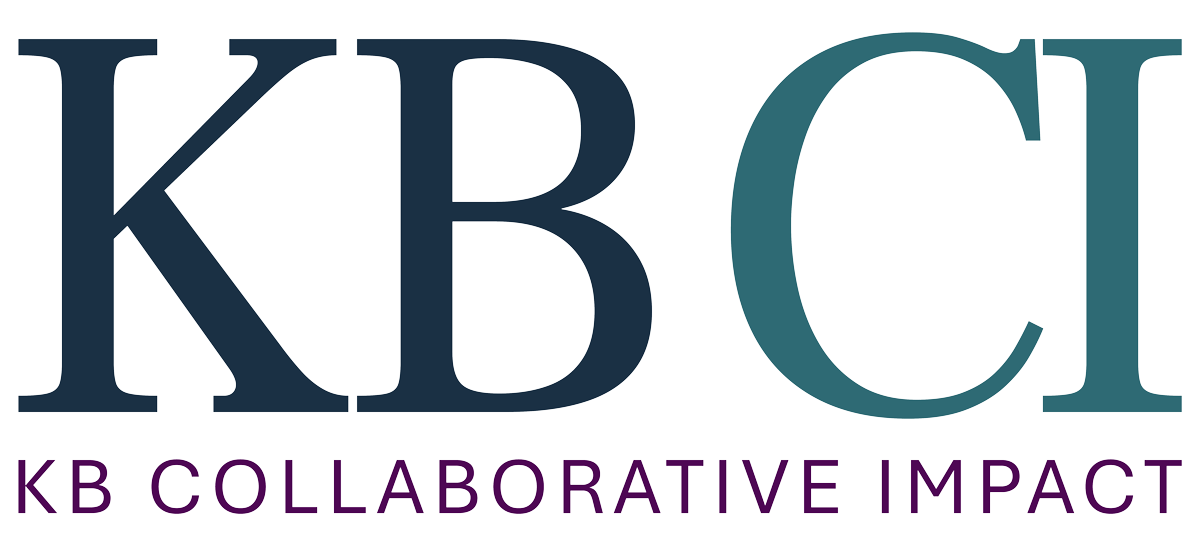
Your Team Can Achieve More and Do It Better. Here’s How.
by Katherine Burke
Do you worry that your team of high-performing individuals isn’t producing outputs that represent more than the sum of their parts? We all know that a cohort of exceptional individuals can be exponentially more powerful than any group of high-performing individuals operating independently. But to create and maintain a highly productive, collaborative, committed and satisfied team, I believe that team leadership must cultivate five critical components.
5 Critical Components of a Highly Effective Team
- Shared sense of purpose or mission
- Strong trust in one another
- Commitment to mission over self
- Understanding of each individual’s role and reason for being a part of the team
- Tools, processes and norms that enable the mission to come to life
How does a team develop these core components? There is structural and philosophical groundwork that must be completed on any team to define its purpose/mission and roles. (Topics for a forthcoming post.) However, to maximize your team’s productivity, it is critical to maintain consistent openness, accountabilityand positivity – modeled by everyone on the team.
3 Core Behaviors for Team Success
Openness: Team members at all levels, including the most senior leadership, must share useful and relevant information quickly and truthfully. Difficult messages should be honest, and openly acknowledge the challenges they address, not be sanitized to the point that they no longer say anything. Team members must share information with each other regularly and thoughtfully – constantly asking “who could better perform their role if they knew what I know?” A default to open, honest and consistent communication tells everyone on the team that they are worthy of receiving important information, they are trusted with information, and that their honest reactions to information are valued. Team members understand that their colleagues are actively trying to help them succeed, and that their leadership recognizes their value and trustworthiness. Over time, this behavior builds a critical foundation of trust and a shared commitment to the mission.
Accountability: Everyone on a team has a critical role to play, and every single individual must hold themself accountable for doing their best in their role, living up to team norms, asking for help when they need it, and acknowledging when they fail. Failure can mean that they failed on product delivery, or it can mean that they failed to uphold team values or to support a colleague in a way that would have helped the team deliver. Team members must also respectfully hold each other accountable. One way to help team members remain accountable to the mission is to build tools and processes that promote desired behaviors, and to which all team members are expected to adhere. If you have built a culture that is rooted in trust, honest and routine conversations about performance should be possible, productive and even desired.
Positivity: Members of a team must have a fundamental belief that their mission is achievable and right (even if it might be a very long-term prospect), and that they are the right people to do the work. If team members wonder why they are even there, they will not launch each day and each task with a sense of possibility and positive progress towards the team’s purpose. On teams where individuals know why they are there and believe in what they are trying to achieve, every task takes on a meaning, and even small achievements resonate as movement toward a greater goal. People naturally garner personal satisfaction from success. Team members should be encouraged and given space to share their individual accomplishments driving team success, and team successes should be openly and frequently celebrated. Explicitly acknowledged progress, even small progress, generates enthusiasm and a desire for continued success.
This is obviously a simplistic view of teams – there are many complexities around team structure, roles and responsibilities, management styles, etc. that sit beneath these core behaviors. And while these behaviors might sound easy in writing, all practitioners know that they are a constant challenge in practice. Transparency can be scary, and sharing information with colleagues can feel like giving up a competitive advantage. There is always a fear that personal accountability can result in career repercussions, and holding others accountable runs the risk of creating conflict. It can be difficult to maintain and positivity and focus on small achievements when a team or an organization is struggling.
Continuous progress toward these principles is possible under even the most challenging circumstances. It is only with a constant push toward these ideals that a team can develop the critical components of success and achieve its full potential.
Looking for a great read on this subject? Check out Culture Eats Strategy for Lunch by Curt W. Coffman and Kathie Sorensen, PhD.
Looking for hands-on and bespoke support to help your team develop the habits that will allow them to maximize their shared potential? Sometimes a neutral outside party is exactly what you need, and I’d love to help your team work more effectively to tackle challenges and achieve its goals. Learn more about how I can help here.

